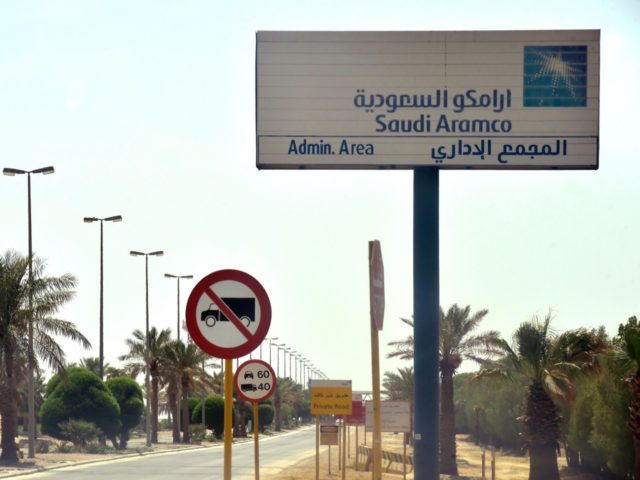Saudi Arabian energy minister Prince Abdulaziz bin Salman said on Tuesday that oil production will be fully restored by the end of September following a drone and missile attack on oil facilities Yemen’s Houthi rebels have claimed.
The U.S. and Saudi governments have accused Iran of orchestrating the attack.
Bin Salman told a news conference in Jeddah that half of the production lost to the weekend attack has already been restored.
“We are in the process to bring back oil refining to full capacity. The company will honor all of its commitments to its customers this month by drawing from its reserves of crude oil and further modified some of its oil until the production capacity of the country is up to 11 million barrels a day by the end of September and up to 12 million barrels in November,” he said.
At the same press conference, the chairman of Saudi Arabia’s immense national oil company Aramco said the company’s long-awaited stock IPO will proceed on schedule despite the attack.
“The IPO is a commitment by the shareholder, the government of Saudi Arabia, and we think the IPO will continue as is, we are not going to stop anything,” chairman Yasi al-Rumayyan said.
Saudi officials reportedly considered delaying the Aramco IPO due to security concerns after the attack, but have evidently concluded potential buyers of the company stock can factor risk into their offers without dragging the stock price down too much. Some investors have publicly expressed anxiety about buying into the company or flatly pronounced it too risky to invest in under the circumstances.
The initial stock offering is expected to raise about $20 billion, with another offering of equal size planned for next year. Even those huge sums would represent Aramco selling only about two percent of its stock. The Saudis have made plans to sell about five percent of the company in total to raise money for more diversified investments, transitioning their economy away from complete dependence on oil.
Aramco CEO Amin Nasser said the attack on Saudi oil facilities was a “huge” event, but the company is capable of quickly repairing the damage and has enough inventory to keep its customers supplied without interruption. This prompted Energy Minister bin Salman to proudly ask, “Where would you find a company in the whole world that went through such a devastating attack and came out like a phoenix?”
The Jeddah press conference was upbeat enough to drive world oil prices down by five percent after a price surge on Monday. President Donald Trump said on Tuesday that Aramco has restored enough capacity and released enough inventory to make tapping into the U.S. Strategic Petroleum Reserve unnecessary.
Trump also ordered the U.S. Treasury Department on Tuesday to “substantially increase” sanctions against Iran as punishment for the attack.
Some global oil market analysts responded to the Saudi press conference with a note of caution, saying the attack might not have massively disrupted oil supplies but it has seriously depleted Saudi reserves, making it very difficult to absorb the impact of another such attack.
“As much as the Saudis have downplayed the extent of the latest outages, we should not be lulled into a false sense of security. Tensions in the region are still running high and the specter of a further escalation is hanging over the oil market,” Stephen Brennock of London’s PVM brokerage told CNBC on Wednesday.
This analysis would suggest Iran and/or their Houthi proxies in Yemen have enormous incentives to hit the Saudis again. Iran desperately needs oil prices to rise, making it harder to keep their own products off the market with sanctions. They also wish to shatter global confidence in the Saudi oil industry and could strike a major strategic blow against the economy of their top regional adversary by compromising, delaying, or canceling the Aramco IPO, which is a pivotal element of Riyadh’s development strategy for the coming decade.
Some analysts view the Aramco IPO as an unstoppable train that has already “left the station,” as one banker put it to Reuters on Tuesday. Derailing that train would be a landmark achievement in Iran’s quest to become the hegemonic power of the Middle East.
Conversely, the prestige of the brutal regime in Tehran would be seriously damaged if the Saudis brush off the attack on their oil fields and get back to business as usual in a matter of weeks while the United States ratchets up punishing sanctions against Iran even further, giving the unhappy Iranian man on the street even more reason to wonder if his rulers think about him at all when they play their dangerous games with foreign powers. It seems unlikely that Iran can allow the Saudis’ chipper press conference in Jeddah to be the last word on the great oil attack.

COMMENTS
Please let us know if you're having issues with commenting.